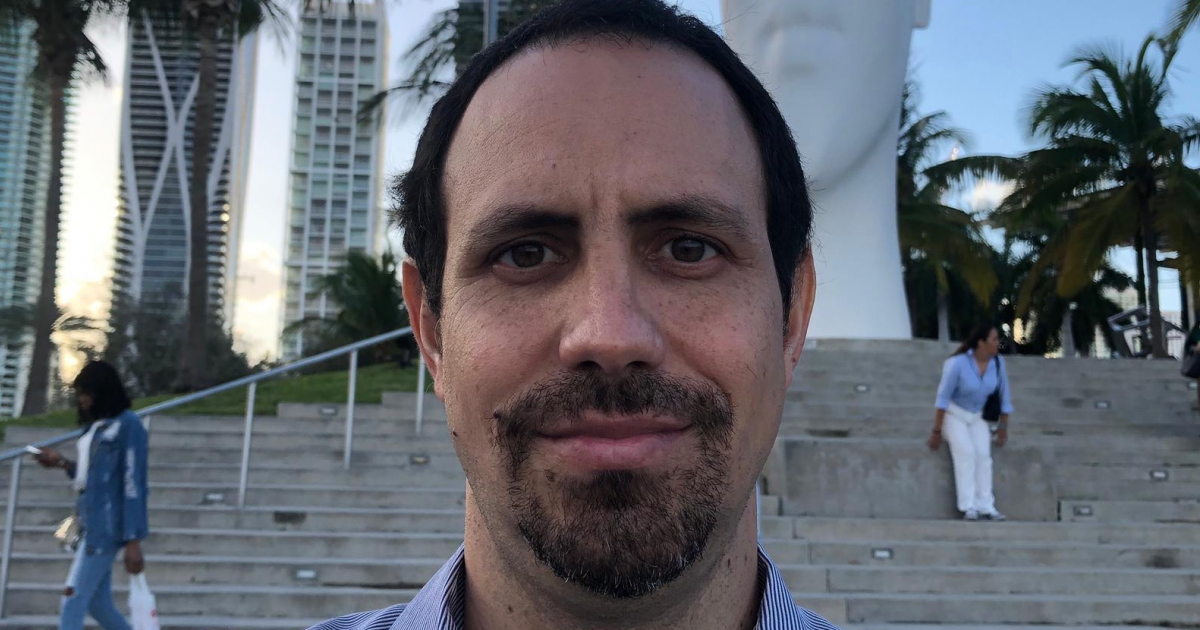Oscar Casanella (born February 22, 1979), a biochemist and former Immunology professor at the University of Havana, has faced relentless persecution under the regime of Miguel Díaz-Canel. After enduring harassment from state security agents who confined him to his home, and a constant disruption of communications, he fled Cuba in 2021 with his pregnant wife and young son. Now, three years later, he remains in a legal limbo in the United States, unable to regularize his immigration status.
The Unexpected Struggles of a Cuban Intellectual in the U.S.
Despite being a target of Cuba's oppressive regime, Casanella is without secure residency in the U.S. "My situation," he explains, "stems from a mix of circumstances. I was harassed by Cuba's political police even in other Latin American countries. The U.S. halted the Cuban political refugee program in 2017, and I entered the U.S. without permission, crossing the southern border. At this border, I wasn't given a credible fear interview or investigated. Instead of parole, I received an I220 A document. Those of us with I220 A are not eligible for the Cuban Adjustment Act to seek U.S. residency. My first asylum hearing is not until May 2025, and second hearings are being scheduled five years after the first."
A Reluctant Exile
Casanella never intended to emigrate permanently. He relished travel but always returned to Cuba until he was effectively under house arrest throughout 2021. "We couldn't work under those conditions—our mobile communications were cut, and we sold our belongings just to survive," he recalls. The Cuban political police had him "regulated" since 2018 for aiding activist Ariel Ruiz Urquiola. With a 24-hour watch outside his home, he was barred from even stepping out into the street. Just before the planned November 15, 2021, protest by the Archipelago group, he was told he could leave the house and the country, but only within a month, or face imprisonment.
Facing New Challenges in the U.S.
After a harrowing journey, including arrest and deportation in Mexico, Casanella and his family reached the U.S. via El Paso, Texas, in January 2022. "The handling of immigrants at the southern U.S. border was abysmal," he asserts. "I expected a credible fear interview and investigation of my story during detention, but none occurred. We were released with an I220 A document, not a parole, and without a 'Notice to Appear' for deportation proceedings. The distribution of parole or I220 A was random, with no prior credible fear interview."
The Injustice of Unequal Treatment
It's disheartening, Casanella notes, that known Cuban regime enforcers arriving with humanitarian parole manage to regularize their status, while he remains in limbo. "Such inconsistencies make many, myself included, question the effectiveness of U.S. immigration authorities. These repressors should face consequences and not enjoy the rights they denied us in Cuba," he insists. He believes many have likely lied or withheld information during their immigration processes.
Legal Hurdles and Hopes for Stability
Legally, Casanella's best path forward is to continue his asylum process, a solid case, yet one that could take a decade or more to resolve. This prolonged uncertainty hampers his family’s ability to secure credit for housing, pursue higher education, and access certain job opportunities. "I want to provide stability for my children," he says.
Disappointment with U.S. Policy
Casanella feels the Biden administration has sidelined Cuban exiles, suggesting that Cuba is not a priority for the Democratic Party. "Obama's rapprochement with the Cuban dictatorship only bolstered the regime's repressive capabilities, prolonging the suffering of the Cuban people," he laments.
Support from the Cuban Community
Despite the challenges, Casanella has found support within the Cuban community in South Florida. "I've reconnected with old friends and made new ones who have been incredibly supportive," he shares. The historical exile community in Miami has extended invitations and embraced him, providing some comfort amid ongoing struggles.
